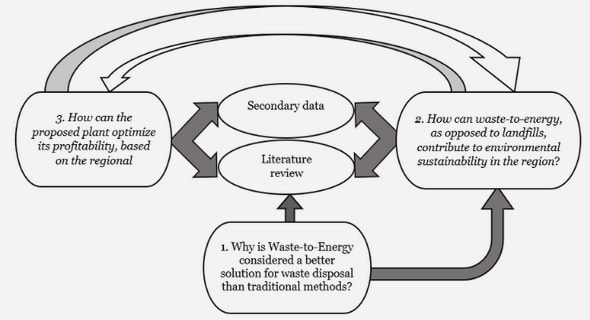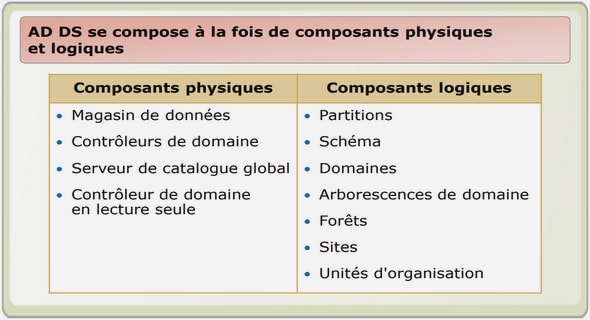Get Complete Project Material File(s) Now! »
Structure of the Study
This research consists of six chapters.
Chapter 1: Emergence of A Legal Paradigm of Accountability in International Institution Law:
The Case of IFIs This chapter conceptualises accountability as a multifaceted phenomenon that can be envisaged in many contexts ― including, financial, political, administrative, professional and legal ― of which each comprises various mechanisms structured with different levels of technicalities.
The chapter also examines the existence and relevance of a legal accountability paradigm that is specific to the law of international institutions in general and the law of IFIs in particular. It broadly analyses the aim, actors, and process of legal accountability.
Chapter 2: Accountability by Whom and to Whom: An Overview of IFI-Funded Projects and Policy Reforms This chapter is aimed at addressing some of the preliminary questions inherent in any study of accountability, including accountability by whom and to whom. Accountability is by selected IFIs, the International Finance Corporation (IFC) and African Development Bank (AfDB), (by Whom) to project affected people (to Whom) on the question of whether these institutions have abided by the laws applicable to them (standards) as far as the interests of third parties to IFIfinancial agreements are concerned. The chapter only deals with the issue accountability by whom and to whom; whereas the issue of the standards of accountability is addressed in the next chapter. This chapter analyses the documents that are involved in the job of selected IFIs as well as other conducts about which account is to be rendered. It also reviews some case studies to further the understanding of the circumstances under which the operations of IFIs could negatively impact the interests of project third parties and, therefore, raise the issue of accountability by these institutions towards the affected parties.
Chapter 3: Accountability Standards Applicable to IFIs and Their Operations This chapter surveys the standards against which operations of IFIs are to be assessed. In particular, it examines the sources and contents of IFIs’ legal obligations arising out of their relations with their contracting parties and the outside world, including individual third parties. In this regard, the chapter assesses the extent to which human rights and environmental standards apply to IFI-funded projects and policy reforms. This chapter also examines the issue of enforcement of the legal obligations of IFIs. It assessed the extent to which the adoption of legal steps required by the applicable laws and regulations effectively meet the substantive requirements such laws and regulations intended to impose on IFIs and the participants to their operations.
Chapter 4: Legal Accountability Fora and Their Mechanisms This chapter addresses the mechanisms of accountability that are available to project affected parties. It assesses the potential of available accountability avenues to protect, restore or advance the legally protected rights of this category of plaintiffs. The chapter examines the forum before which an IFI is to be held to account for its conduct, be it a positive action or an omission. In particular, this chapter analyses the accountability jurisdictions and associated mechanisms as far as the relationship between IFIs and affected individuals or groups is concerned. It assesses the limits of accountability fora which provide direct access to non-state third parties in a dispute involving IFIs. It also explores alternative accountability fora that can provide indirect access to non-state third parties that have been affected by operations of IFIs.
Chapter 5: Legal Challenges of Keeping IFI Operations on Track This chapter discusses the purpose of legal accountability of IFIs. It aims at analysing the objectives of promoting legal accountability for non-state third parties affected by IFI-funded projects. The chapter also seek assessing the extent to which the mechanisms that have been made available to this category of plaintiffs are likely to meet their intended purposes. This chapter highlights the strengths and weaknesses of existing legal accountability mechanisms with a view to establishing whether and to what extent affected people could rely on them to further their interests.
Chapter 6: Concluding Remarks and Recommendations This chapter summarises the findings of the different chapters of this research and suggests some recommendations.
Legal Personality of IFIs
Traditionally, international law was considered to be a set of rules and principles made by and for sovereign States. The reason was that States were the only subjects of international law and the only legal persons, over the period before 1800, possessing the totality of rights and duties recognised by international law.40 The fundamental principle governing this community of States was the sovereignty of each of them, thus contributing to a legal system based on a limited number of rules that were necessary to ensure peaceful relations between States. The control exercised by States in the making and development of international law had somewhat contributed to its effectiveness. With the establishment of IOs in the nineteenth century, it became clear that States are not the only subject of international law.41 This situation has raised the question as to the extent to which these new international bodies possess legal personality.42 The rationale behind the concept of legal personality is to determine the rights and obligations of IOs that can be enforced on the international or domestic planes. Indeed, this concept enables the identification of the subjects of international or domestic law, to which the law attributes rights and duties43. As Kelsen has noted, the law cannot just think in terms of rights and duties, but also needs to be able to point to someone or something possessing those rights and duties.44 “There must exist something that ‘has’ the duty or the right.”45 To borrow the words of Weissberg, Legal personality is the “means by which a particular legal system attributes rights and obligations to an entity separate from and independent of those who created it or are part of it.”46 Thus, the term personality has to be seen only as a “shorthand for a proposition that an entity is endowed by international law with legal capacity.”47 . Notwithstanding its fundamental role in both international and domestic legal systems, the notion of legal personality has no fixed content. This is to say that the extent of the rights and duties which derive from it vary with each legal entity. Like in municipal law, subjects of international law are not necessarily identical in nature, and the extent of their rights differs in many respects. In other words, all legal persons are not equal and do not necessarily possess the same rights and obligations. For example, in municipal law, the rights and duties of a natural person are not the same as those of a corporation. Natural persons are entitled to political and labour rights, to name a few, while corporations are not. Similarly, States remaining the principal legal person of international law have an original personality as an inherent attribute of statehood.48 They have the absolute competence and total rights and duties recognised by international law, but the same cannot be said for other participants in international law.
CHAPTER ONE
EMERGENCE OF A LEGAL PARADIGM OF ACCOUNTABILITY IN INTERNATIONAL INSTITUTION LAW: THE CASE OF IFIs
1.1. Introduction
1.2. Problem Statement
1.3. Research Questions
1.4. Objective of the Study
1.5. Methodology of the Study
1.6. Literature Review
1.7. Structure of the Study
1.8 Conclusion
CHAPTER TWO
ACCOUNTABILITY BY WHOM AND TO WHOM: AN OVERVIEW OF IFI-FUNDED PROJECTS AND POLICY REFORMS
2.1. Introduction
2.2. Financial Services Offered by IFIs
2.3. Overview of the Operations of IFIs
2.4. Financial Structure Underpinning IFI-Funded Operations
2.5. Oversight of IFI Activities
2.6. Case Studies
2.7. Conclusion
CHAPTER THREE
ACCOUNTABILITY STANDARDS APPLICABLE TO IFIs AND THEIR OPERATIONS
3.1. Introduction
3.2. Legal Personality of IFIs
3.3. Legal Order of IFIs
3.4. Enforcement of IFI Laws
3.5. Compliance with IFI Laws
3.6. Conclusion
CHAPTER FOUR
LEGAL ACCOUNTABILITY FORA AND THEIR MECHANISMS
4.1. Introduction
4.2. Accountability of IFIs before Domestic Jurisdictions
4.3. Independent Review Mechanisms
4.4. Accountability of IFIs before International Judicial or Quasi-Judicial Bodies
4.5. Accountability of IFIs in the Lens of Law of International Responsibility
4.6. Conclusion
CHAPTER FIVE
LEGAL CHALLENGES OF KEEPING IFI OPERATIONS ON TRACK
5.1. Introduction
5.2. Limited Capability of Applicable Standards to Protect the Interests of Stakeholder Groupings Equally
5.3. Limited capability of Accountability Fora to Enforce the Interests of Affected Peoples and Increase the Effectiveness of IFI-Funded Projects
5.4. Conclusion
CHAPTER SIX
FINDINGS AND RECOMMENDATIONS
6.1. Introduction
6.2. Findings
6.3. Recommendations
5.4. Conclusion
BIBLIOGRAPHY


